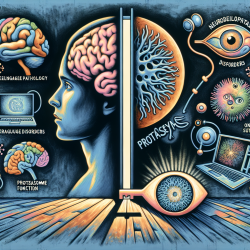In the ever-evolving landscape of assisted living (AL), maintaining cognitive and functional abilities is crucial for residents who wish to preserve their independence. A groundbreaking study titled Reasoning Exercises in Assisted Living: a cluster randomized trial to improve reasoning and everyday problem solving offers valuable insights into how cognitive training can make a significant difference in the lives of AL residents.
The Challenge of Cognitive Decline in Assisted Living
Assisted living facilities are home to many older adults who experience mild cognitive impairments or early-stage dementia. These residents often require assistance with instrumental activities of daily living (IADLs) such as medication management and meal preparation. The fear of further cognitive decline and potential transfer to more intensive nursing home care is a common concern among AL residents.
The REAL Program: A Promising Solution
The study introduces the Reasoning Exercises in Assisted Living (REAL) program, a cognitive training intervention designed to enhance everyday reasoning and problem-solving skills. Conducted across 13 Midwestern facilities, this study involved AL residents with varying degrees of cognitive impairment.
The REAL program focuses on teaching inductive reasoning strategies that are applicable to real-world situations. For example, participants learn to identify patterns and apply them to tasks like finding a phone number or managing medication schedules. The program also incorporates problem-solving steps, encouraging participants to break down problems into manageable parts.
Key Findings: Improved Problem-Solving and Self-Care Competence
The study's results were compelling. Residents who participated in the REAL program showed significant improvements in their Everyday Problems Test for Cognitively Challenged Elders (EPCCE) scores immediately after the intervention. These gains were retained at a three-month follow-up. Additionally, participants demonstrated enhanced Direct Assessment of Functional Status (DAFS) scores, indicating better self-care abilities.
In contrast, control groups that received either a vitamin education program or no treatment at all did not exhibit similar improvements. This highlights the unique benefits of targeted cognitive training like REAL.
Implications for Practitioners
- Implement Cognitive Training: Consider integrating cognitive training programs like REAL into your practice. These interventions can help residents maintain their independence by improving their problem-solving skills and self-care abilities.
- Monitor Progress: Regular assessments using tools like EPCCE and DAFS can help track residents' progress and tailor interventions to meet individual needs.
- Encourage Ongoing Learning: Stay informed about the latest research and developments in cognitive training for older adults. This knowledge can enhance your ability to support residents effectively.
- Advocate for Support: Work with facility administrators to secure resources for implementing cognitive training programs. Highlight the potential cost savings associated with delaying nursing home placement through improved resident self-care.
The Path Forward: Further Research and Implementation
The study's findings underscore the importance of continued research into cognitive training interventions for AL residents. Future studies should explore long-term effects, optimal intervention frequency, and cost-effectiveness. Additionally, exploring group-based training sessions could offer a more cost-effective approach while maintaining program efficacy.
For practitioners interested in enhancing their skills and knowledge, this research provides a solid foundation for further exploration into cognitive interventions that support aging in place for AL residents.
To read the original research paper, please follow this link: Reasoning Exercises in Assisted Living: a cluster randomized trial to improve reasoning and everyday problem solving.










